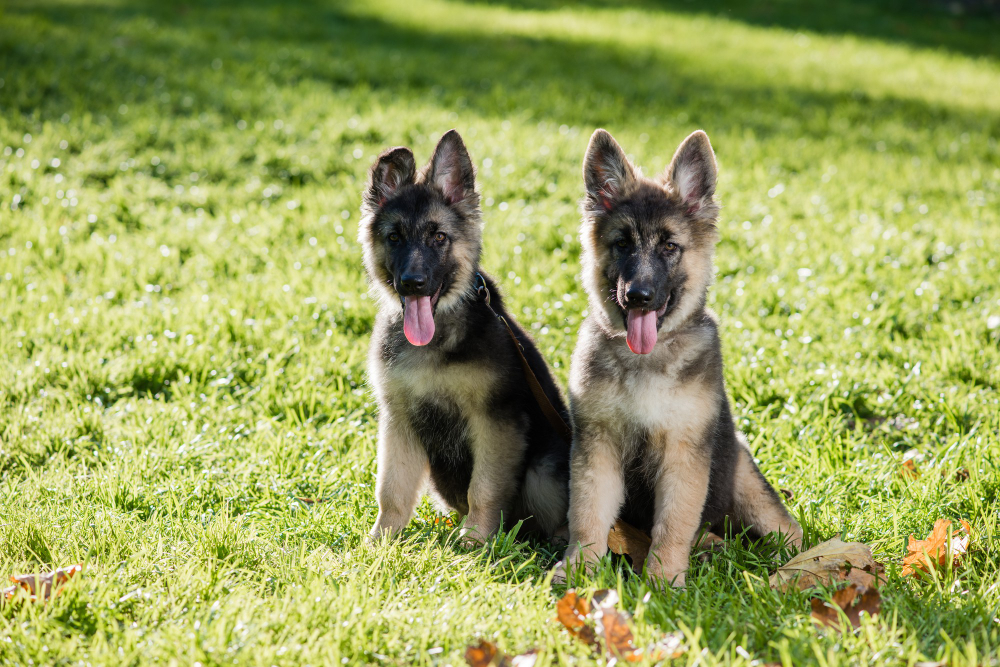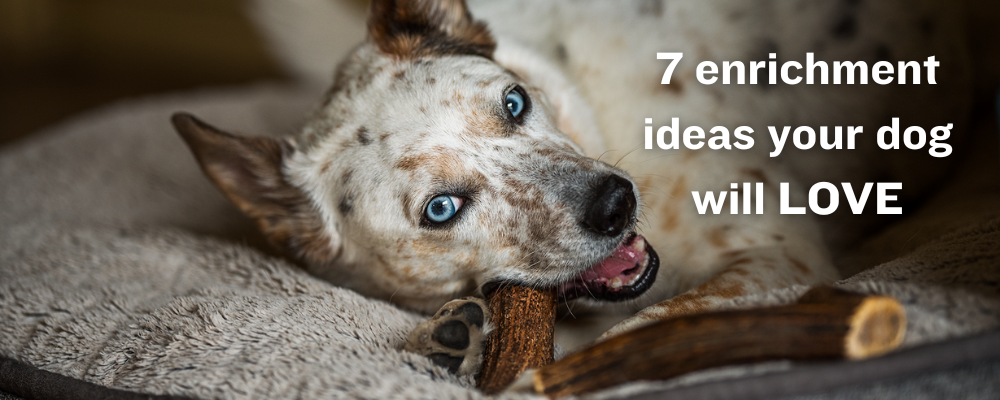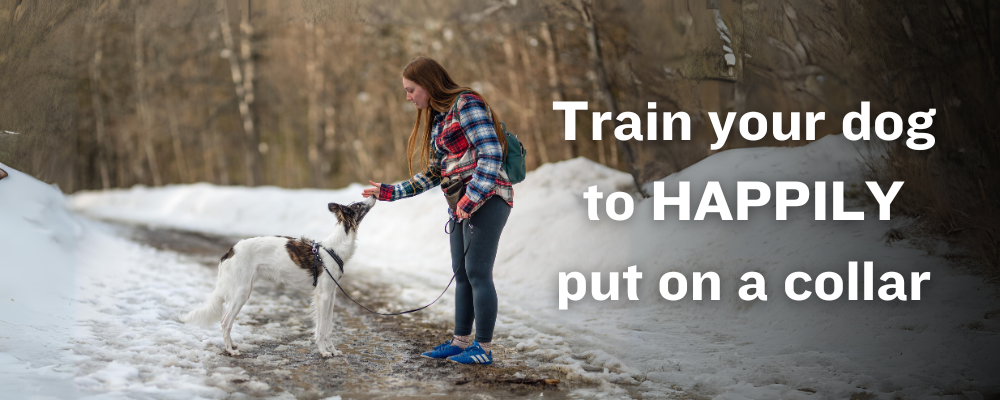If you ask any German Shepherd dog owner, I bet ten out of ten would agree that having a GSD is one of the most loving, adoring, and rewarding decisions they’ve ever made.
However, many GSDs are handed over to shelters because some pet owners realized that they cannot afford the time and effort required to train and socialize their dogs properly.
In this post, I want to walk you through ten questions you have to ask yourself before getting your first GSD. The idea is not to talk you out of it, but to give you a better understanding of what you will face, so you can be better prepared.
Here we go!
1. Are you willing to spend most of your time with your GSD for the next 10 years or so?
Depending on the lifestyle, diet, and gender, German Shepherd dogs have an average lifespan of 10-12 years. Ask yourself these questions and decide whether you can commit to these basic routines:
- Will you be able to walk your dog for at least 1 hour per day?
- Will you groom your dog daily?
- Do you have the time and patience to train with her?
And multiply the effort by 10+ years.
That said, you must be willing to devote your time and energy to accompany, walk, groom, socialize, and most importantly train your GSD properly. If you think you cannot commit to this for the lifespan of a GSD, this is definitely not the right breed for you.
When you have a German Shepherd, you can’t go to a restaurant. You can’t go on holiday without them. You can’t go anywhere without your dog. (She will follow wherever you go.) But you will find yourself in parks or trails with your GSD as the best company in all weather conditions.
You may also like:
How to Extend A German Shepherd‘s Lifespan? 6 Tips You Must Know
2. Will you give your love and care to a child that never grows?
German Shepherd Dogs are bred to work for and with humans. So they are born with the trait to be quite attached to their owners. Just because they grow fast from a cuddly puppy to an adult dog that weighs over 100 pounds, doesn’t mean they will be on their own.
From the day they leave her mummy and litter siblings, they will need your care and love.
There will be days when they will pee and poop around your house. And there will be days when he gets car sick and pukes all over the place. And there will always be times she will get separation anxiety and chew on your furniture and tear off your pillows.
Let’s hear what GSD owners have to say:
- “I never go to the bathroom alone.” – Betty A.
- “Where I go she goes.” Linda K.
- “I have a shadow that follows me everywhere.” – Terry J.
- “More water on the floor than in the water dish.” – Bryon M.
- “No room on my bed.” – Dee B.
- “You should hear him cry when we leave the room.” – Brian L.
- “Shark bites on my hands and arms.” – Theresa O.
(Source: From the post “Tell me you have a German Shepherd without telling me you have a German Shepherd” in German Shepherd Shop Facebook Group)
German Shepherds, like most other dogs, are children that will never grow up even when they aged. You must be willing to give them love, care, and attention as much as you would to a baby for their entire life.
Related posts:
German Shepherd Puppies: Everything You Need to Know
10 Best Training Tips for German Shepherd Puppy
German Shepherd Puppy Sleeping Guide: Everything You Need To Know
Why Are German Shepherds So Stubborn? And What to Do About It?
3. Do you have an active lifestyle?
German Shepherds are herding dogs that require plenty of physical and mental exercises every day. They need to be out and about – to have long walks plus a variety of fun activities (e.g. playing fetch or tug of war, etc.) for stimulations.
For adult German Shepherds, the American Kennel Club recommends at least two hours of exercise daily. That being said, you and your family should be prepared to be active with your GSD.
If you like walking, hiking, biking, or happen to be a marathon runner, it shouldn’t be a problem at all. Your GSD will be your perfect exercise companion day in and day out.
Related: Can German Shepherds Run a Marathon?
However, if you are no sporty person but are planning to lose some weight, you could definitely take advantage of your GSD as your activity partner.
Since GSD are intelligent dogs, chances are that they might get bored easily with repeated activities. It will be a good idea to keep introducing new tricks, different parks or routes to cater to your GSD’s need.
4. Are your living conditions suitable for your GSD?
I am sure you will treat your GSD like your own kids. Your dog will be living with you, sleep by your side, and most likely follow wherever you go around your home (even to the bathroom, seriously).
Your GSD will be spending a lot of time with you and your family, and alone (when you are out for work) in your dwelling.
Please be reminded that GSDs are large dogs. An adult male GSD can weigh over 100 Ibs and needs sufficient space to move around.
So it is very important that your home, as well as your neighborhood, has the orientation to cater to your GSD’s size.
Ask yourself these questions before getting a GSD:
- Have you talked to your spouse, your kids, your parents (if you are under age) about getting a dog?
- Are they willing to share the dog walks, feeding, cleaning, and most importantly their care and love to a new family member?
- If you have young kids at home, will you involve them in dog training so they can learn how to deal with your dog’s behavior?
- If you live in an apartment, are there any restrictions on dogs or dog breed?
- How will you envisage your neighbor’s reaction to your dog’s noise (e.g. barking, howling, or pacing) if you are not home?
- Will they tolerate or complain about your dog’s behavior?
- Does your neighborhood have enough area and facilities (e.g. parks) to let your dog exercise daily?
Related posts:
Tips for Living with a German Shepherd in an Apartment
Can I Work Full-time With a German Shepherd?
5. Will you socialize your GSD with other dogs/cats and people?
Again, GSDs are herding dogs with very strong protection instincts to guard families. This can sometimes become a problem when unchecked.
If not properly socialized early on, they may become overprotective and develop aggression towards strangers and animals.
You certainly don’t want a dog that barks or lunges at everyone and every dog she sees, whether you are walking her or having friends or family to visit you.
Make sure you socialize the puppy with other dogs, people, and kids especially. You have to teach your GSD to relax with people and other dogs or cats around her.
6. Are you willing to train your dogs from an early age?
Do you know why there are so many adolescent dogs in shelters and rescues?
German Shepherd is a large bred. They will grow near their full size at 8-10 months. It will be much harder to for an average adult to physically control them. As their size grows, the demand for physical and mental exercise grows as well. Some people have not thought about it and eventually give up.
If they are not properly trained and socialized early on, it will take more time and effort to rectify disturbing behaviors (like frantic barking, lunging, jumping, and biting) to you, your family, and anyone your dog encounters.
And as an adult dogs, if they get bored and lack exercise, the scale of their destruction is comparatively more intense.
New dog owners must be prepared to commit to the time and effort a GSD needed for training from an early age.
7. Are you able to deal with GSD’s common health issues both emotionally and financially?
Without a doubt, your German Shepherd will be your loyal companion that bonds with you and protects your home. But, there are always two sides to a coin. In fact, most GSDs are prone to common health issues because of their breed’s history. Some are related to the size of these dogs.
Common health issues for GSD may include:
- Skin allergies
- Ear infections
- Sensitive stomach (diarrhea)
- Vomiting
More serious health issues for (senior) GSDs are:
- Hip dysplasia (this is the most common one)
- Elbow dysplasia
- Arthritis
- Pancreatitis
- Bloat (twisted stomach that caused sudden death)
- Cancer
- Urinary Tract Infections (it may develop to kidney stones if left untreated)
- Progressive Retinal Atrophy (that causes night blindness)
That said, you need to prepare yourself emotionally and financially with the chance that your German Shepherd may get sick and need extra care in her later years.
8. Are you willing to set aside a budget for future expenses on your GSD?
To start, resuing a GSD from a shelter will cost you around $300-$800, while purchasing a new puppy from a reputable breeder may cost you anywhere between $800-$5000. That’s just the very beginning.
In your puppy’s first year, expect to spend a few thousand dollars on vaccinations, deworming, veterinary visits, crates, toys, dog foods, snacks, training materials, and so on.
Occasionally, you may need to book for boarding kennels, dog sitting or dog walking service if you are away from home. The cost for a night’s stay is between $25-55. And dog sitting/walking may charge anywhere from $15-$50 per hour.
Vet bills could also cost you a fortune. For example, the cost of hip dysplasia treatment can be anywhere between $3,500 per hip to $7,000 depending on your dog’s condition, size, age, overall health, and other factors. (Source)
You may also like: How to Save 80% with Eusoh – a Peer-to-Peer Vet Bill Sharing Service
Again, the amount of expenses will depend on your location, your dog’s health, diet, lifestyle, and age. While you can buy pet insurance to cover some of the medical expenses, you will still have to budget for the essential items such as vaccinations, dog food and treats, and a powerful vacuum. (to deal with the heavy shedding)
9. Can you put up with the heavy shedding of a GSD?
German Shepherds have a double coat of medium length. Not only will GSDs shed day in day out, but they also lose all their undercoat twice a year (in spring and fall).
Furballs will be on the floor, on your couch, in the kitchen, on the table, on your clothes, and everywhere you cannot even possibly think of.
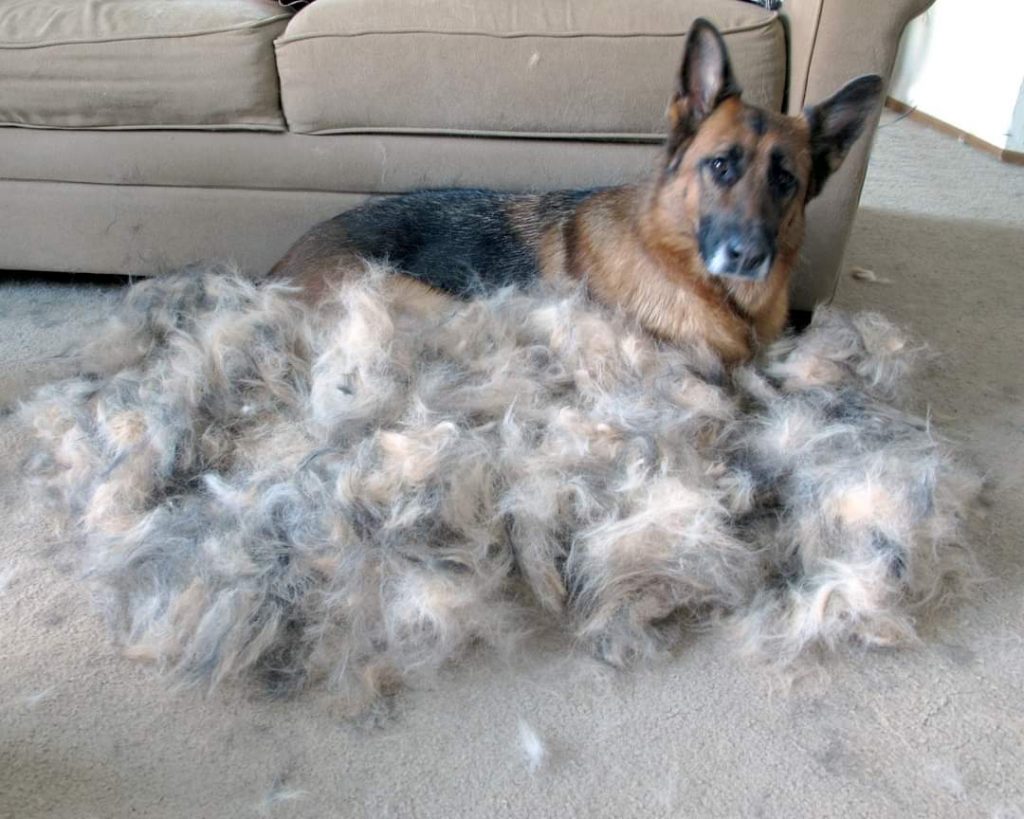
Some owners even admit they can never wear black at home. It is not uncommon for them to have one or two Roomba running at home throughout the day.
You may also like:
How to Stop German Shepherds from Shedding?
10. How will you deal with German Shepherd’s separation anxiety?
Again, German Shepherds are work dogs and they always want to have things to do. If you work a 9-5 job and let your dog home alone for the day, the boredom will easily turn into separation anxiety which causes constant barking or howling, marking or chewing on your furniture.
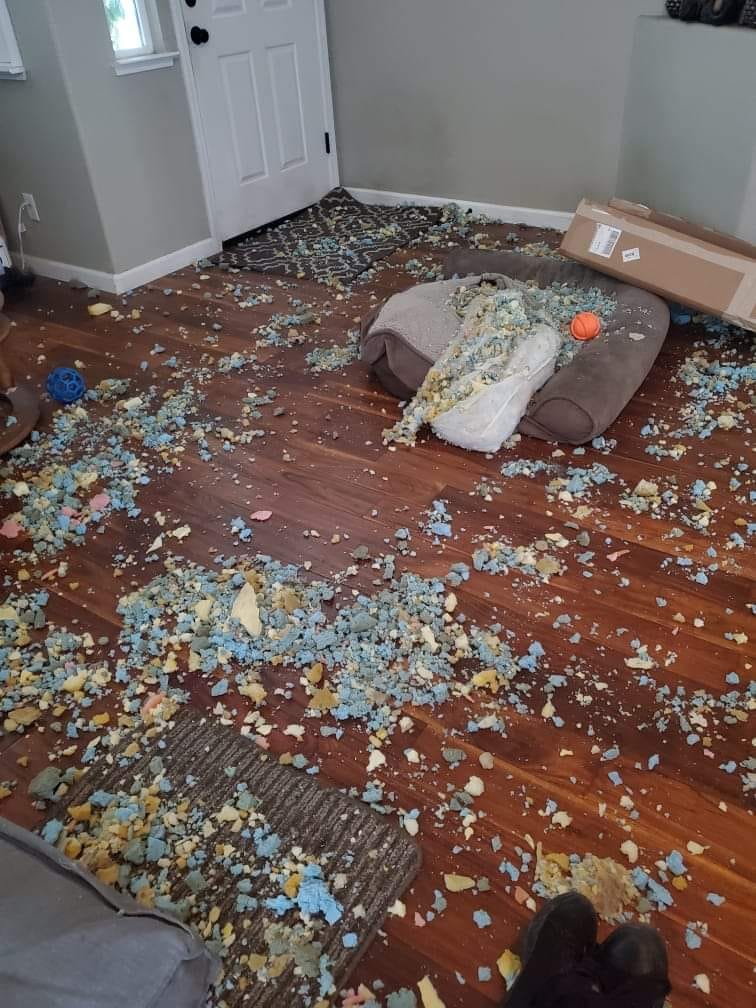
Adult GSD can develop separation anxiety when left alone for longer than 3-4 hours. You will need to keep them both physically and mentally active with walks and play.
Some people will ask their family or neighbor for help. Others will need to hire dog walkers or dog sitters to keep their GSD busy when they are away from their furry baby.
Over to You
To some people, dogs might just be a small part of their life, but to the dogs, we are their whole life. Your GDS’s life depends mostly on you, your lifestyle, your family and friends, your dwellings, and so on.
So as a dog owner, you play an important role in your dog’s life. They just can’t take care of themselves. I hope these questions can put you in the perspective of being a responsible dog owner. If you are not ready or do not have the right circumstances at the moment, you can take your time and work your way towards it.
After all, being well prepared for your German Shepherd will let you and your GSD live happily and healthily for the years to come. Best of luck!

